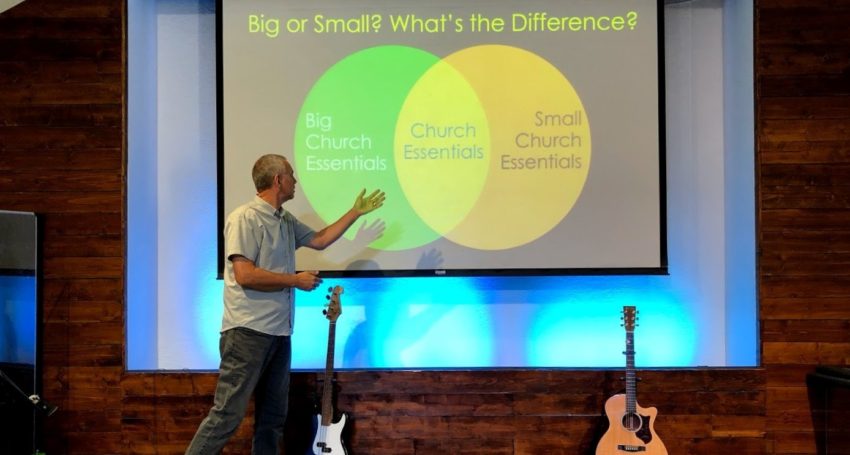Leading small churches (without settling for less)
Reflections
“The energy given in worship, the discipling of members of the congregation, the welcome accorded to visitors, attitudes towards new ideas, the nature and frequency of outreach – these are measures of a church’s health,” says The Rev’d Mark Vincent from The Parish of East Brisbane

Most churches throughout history have been small. Really small. But that never stopped them from being effective. Whether healthy or sick, successful or failing, effective or anaemic, most churches have been, are, and will be small congregations.
Too many priests, pastors, ministers and churches labour under the false impression that their church can’t be great until it becomes bigger. And, they become discouraged as a result. Because a church is small does not mean it is broken, lazy, visionless, ingrown, poorly led or theologically faulty. Small churches are not a problem to be fixed, a virtue to be applauded or an excuse to do shoddy work – maybe, just maybe, there are so many small churches because that’s God’s will, not our failure.
Advertisement
God does not check attendance, instead delighting in continued faithfulness. Putting it bluntly, we need to go beyond measuring ‘butts and bucks’, gauging ‘success’ in terms of church health and vitality, rather than merely growth in numbers. The energy given in worship, the discipling of members of the congregation, the welcome accorded to visitors, attitudes towards new ideas, the nature and frequency of outreach – these are measures of a church’s health.
A church does not need to be big to do the ‘Jesus stuff’ well and, as Karl Vaters argues in his blogs and books, the Jesus stuff is all that matters. Many of the growth principles outlined in current books and seminars apply to big churches and have limited application to small churches. Big churches tend to prioritise vision, process and programs, while small churches tend to prioritise relationships, culture and history.
Vaters proposes that instead of using the term ‘church growth’, it is better to use the less catchy but more useful expression, ‘striving to increase our capacity for effective ministry.’
How then does a small church create and nourish its capacity for effective ministry? By becoming strategic, planning for success, welcoming the world while nurturing seekers, tackling internal issues, focusing on what it does well, becoming more outwardly focused (i.e. ministry not just in the church but ministry from the church) and focusing that ministry on health, not just growth through numbers.
The backbone of a strong, healthy, effective church is discipleship. When a church is making disciples and following the pastoral mandate to “equip God’s people for works of service” (Ephesians 4.11-12) a whole lot of problems get better or go away – including finance issues.
Why? Because of a simple, logical three-step reality:
- when church members are discipled, they do more ministry.
- when church members do more ministry, the church needs less money.
- when church members do more ministry, they give more generously.
If you disciple more members, and raise up more volunteer workers and leaders, it is possible to do more ministry with less money.
St Paul’s Anglican Church, East Brisbane is sponsoring a seminar on ‘Leading Small Churches (Without Settling for Less)’ to be facilitated by international bestselling author Karl Vaters (The Small Church Guy) on the evening of Friday 21 February and Saturday 22 February 2020. Participants will come away from the seminar:
- assured that leading a small congregation does not make them ministry failures.
- inspired to lead with passion, regardless of the size of their church.
- armed with field-tested principles for leading a church in their context.
- possessing new metrics for biblically measuring vitality in small churches.
- equipped with a toolkit of resources to use in their everyday ministry.
- connected to other clergy with whom they can work collaboratively in small church environments.
Cost of the seminar is $49.00, including lunch and refreshments. Register via the faithful + effective website by 5.00 pm Monday 17 February 2020. For more information, please phone The Rev’d Mark Vincent on 0409 544 297. This special event is an initiative of The Parish of East Brisbane, supported by the Parishes and Other Mission Agencies Commission.






